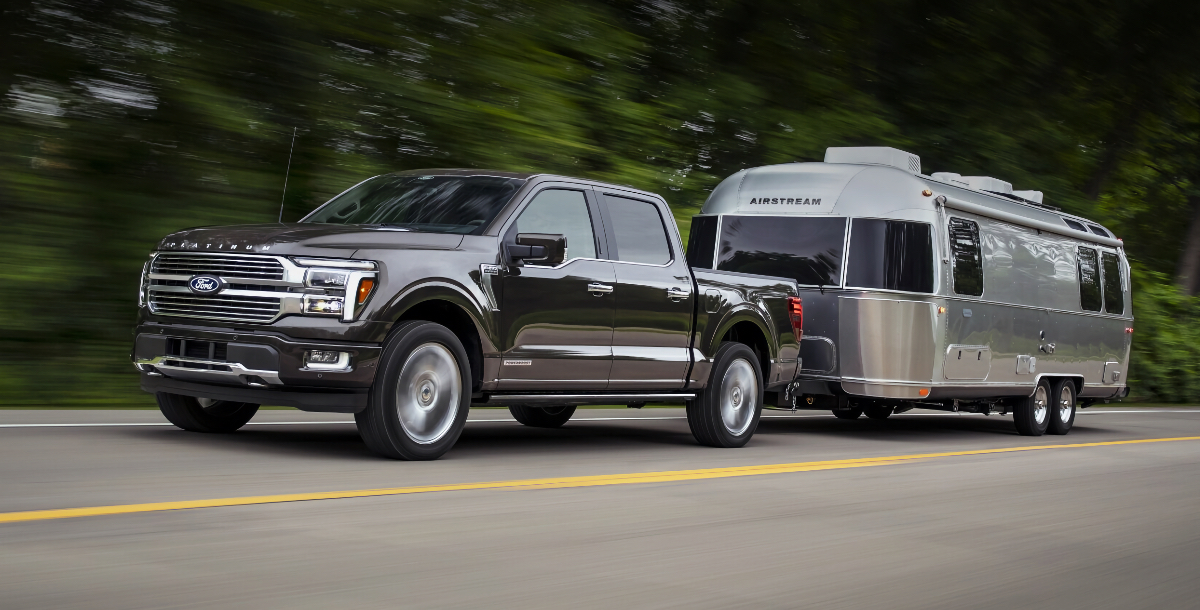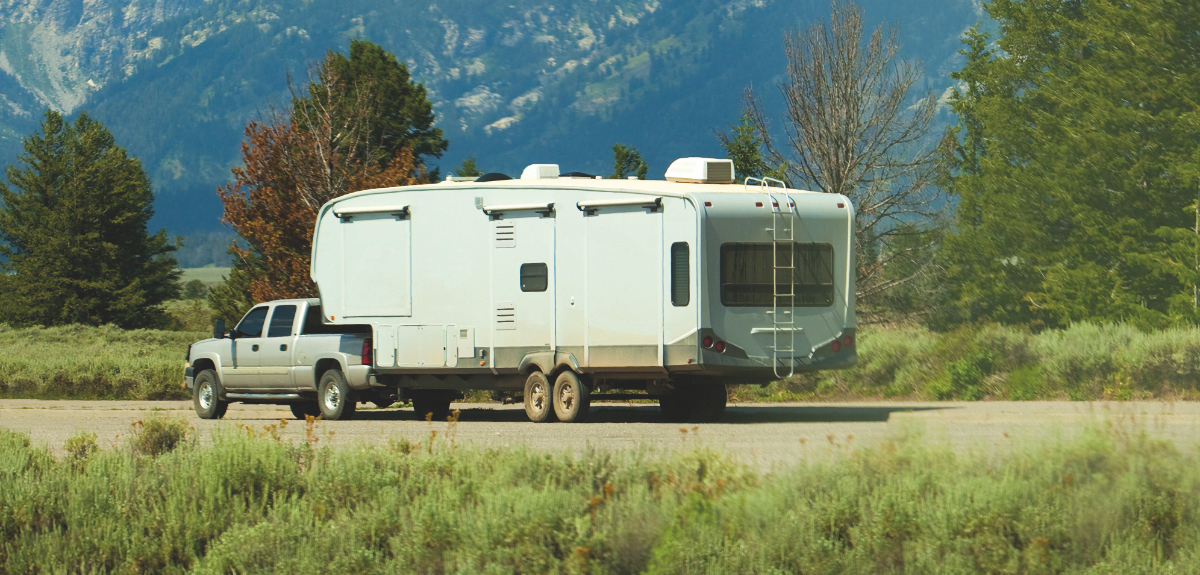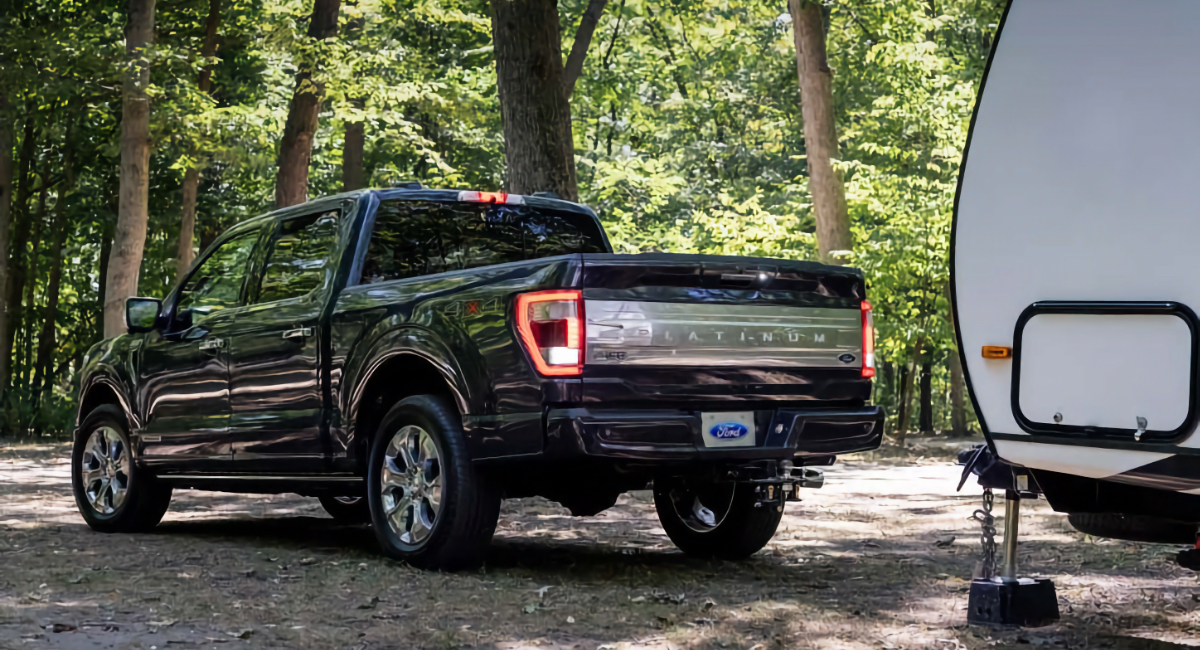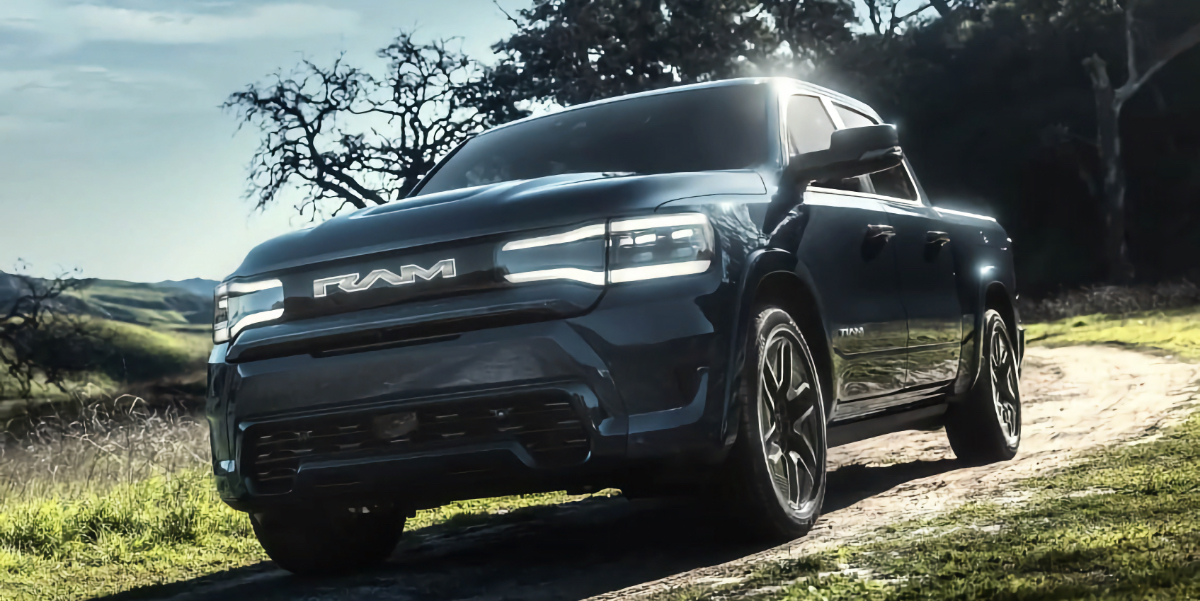Tips For Towing With a Family SUV
Make sure you're prepared to tow with your family SUV before setting off.
Image Caption:
If you want to tow a small camper with your family SUV, there are a few things you need to know. Not all campers can be safely towed with a smaller vehicle. So you should be careful to heed these tips for towing with a family SUV before you do serious damage to your vehicle.
Get Familiar With Your SUV’s Vehicle Information Label
Every vehicle has a maximum weight that the manufacture designed it to tow safely. The easiest place to find these numbers are on the vehicle information label on your driver’s side door or on the doorframe on that side.
There are a lot of numbers on this label though and most of them are acronyms that stand for something larger. So let’s get familiar with some of those acronyms quickly.
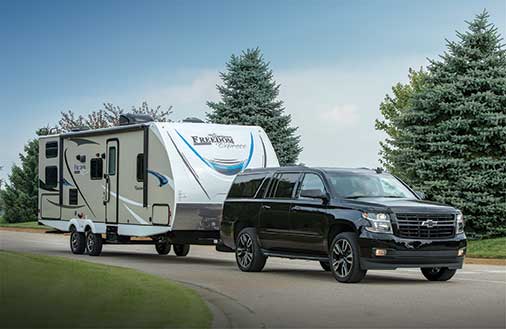
A travel trailer is another great option for couples, and many can be towed with a typical SUV.
GVWR stands for ‘gross vehicle weight rating’. This is the maximum weight that your SUV can weigh when it is fully loaded with passengers and cargo.
GCWR refers to ‘gross combined weight rating’. This is the total allowable weight for your SUV, all passengers and cargo in your SUV, and the weight of your trailer and its cargo.
RAWR is short for ‘rear axle weight rating’. This is the total weight that the manufacturer stipulates can be placed on the rear axle of your SUV safely.
There are going to be other numbers on that label too, but these are the most important for you to understand as you determine how large of a trailer you can tow safely.
Find A Quality Hitch
Many SUVs these days are built with a towing package as a standard feature and others allow you to add it as an option before you buy. If your SUV doesn’t have a tow package, you will have to install one before you seek to tow a trailer.
This package essentially bolts to the frame of your SUV and provides a place to attach a hitch coupler. The hitch coupler you choose will also factor into your maximum allowable towing capacity because it is the all-important connection point between your vehicle and your trailer.
In other words, your vehicle may be able to safely tow 1,000 pounds. But if you choose a low-quality, cheap hitch coupler that isn’t built well, your actual towing capacity can be much less than that. So check out our more trailer hitch considerations to learn how to choose a model from a quality brand.
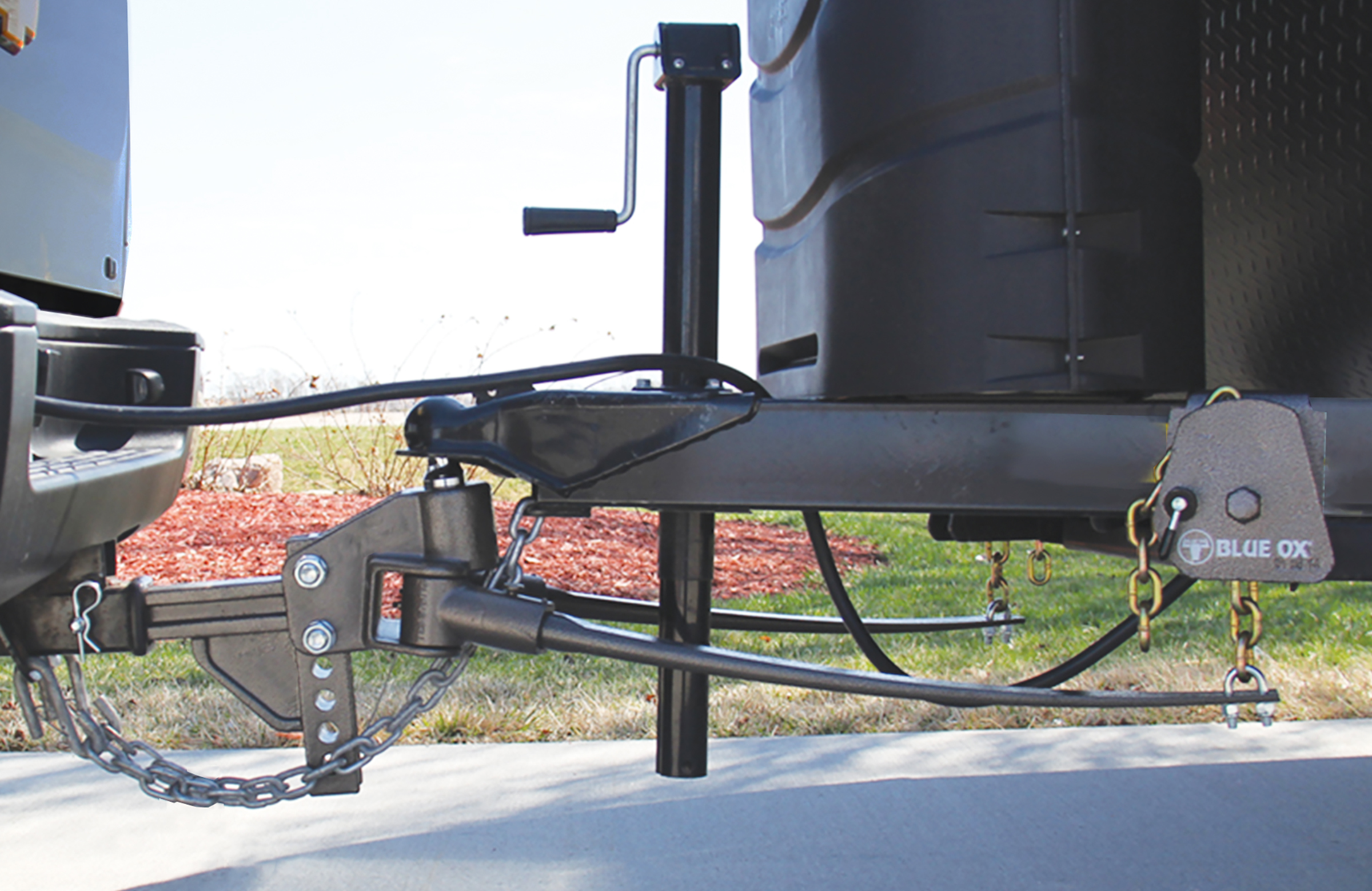
Determine Your Maximum Towing Capacity and Tongue Weight of Your Trailer
The easiest way to find how much you can tow is to dive into your SUV’s owner manual. Your manual should clearly state the maximum weight that you can tow safely. If it doesn’t, you may need to call your dealership or the support number for your vehicle’s manufacturer to find this information.
This number will tell you how much your trailer and all of its cargo can weigh when fully loaded. This will help you choose a trailer that will be compatible with your SUV. But if you already have a trailer, you can compare its total weight (located on the vehicle information label on your trailer) with the maximum towing capacity of the SUV you are considering using to tow it.
From that number, you should also be able to determine your trailer’s tongue weight. This number is typically about 10 to 15 percent of your trailer’s total weight. You want to make sure that this number doesn’t exceed both your SUV’s rear axle weight rating (RAWR) and the tongue weight capacity of your hitch coupler.
Connect Your Trailer and Double-Check Your Connection
Now that all of your numbers don’t exceed the maximum weight limits for your SUV and all towing components, it is time to hook your trailer up. Most people actually recommend attaching your camper before you load all of your cargo into it.
This will keep the tongue of your trailer from rising up off the ground if you load a particularly heavy item into the back of your trailer. When you are backing your SUV into position to connect your trailer, it is always good to have a spotter.
Nowadays, many of us rely on backup cameras, but there is no substitute for a quality partner helping you line things up. But your partner’s instructions must be clear and useful. ‘Go’ and ‘stop’ tend to be a little too general in this context.
As a spotter, it is helpful to create a visual representation (with your hands) of the remaining distance your driver has to go to line the hitch coupler with your trailer hitch. It can also be highly useful to provide verbal cues (i.e. left, right, 3 feet to go, etc.) to help your driver maneuver your SUV into place.
In general, good spotters err on the side of being overly communicative instead of being quiet. In addition to making sure that your trailer is securely attached to your hitch coupler, you must also make sure that all of your connections are secure.
On most trailers, this means your backup chains, breakaway cable, and electrical connector. Once your electrical connector is securely attached, go ahead and ask your spotter to help you check that all of the lights (running lights, brake lights, and turn signals) on your trailer are functioning properly before you go anywhere.
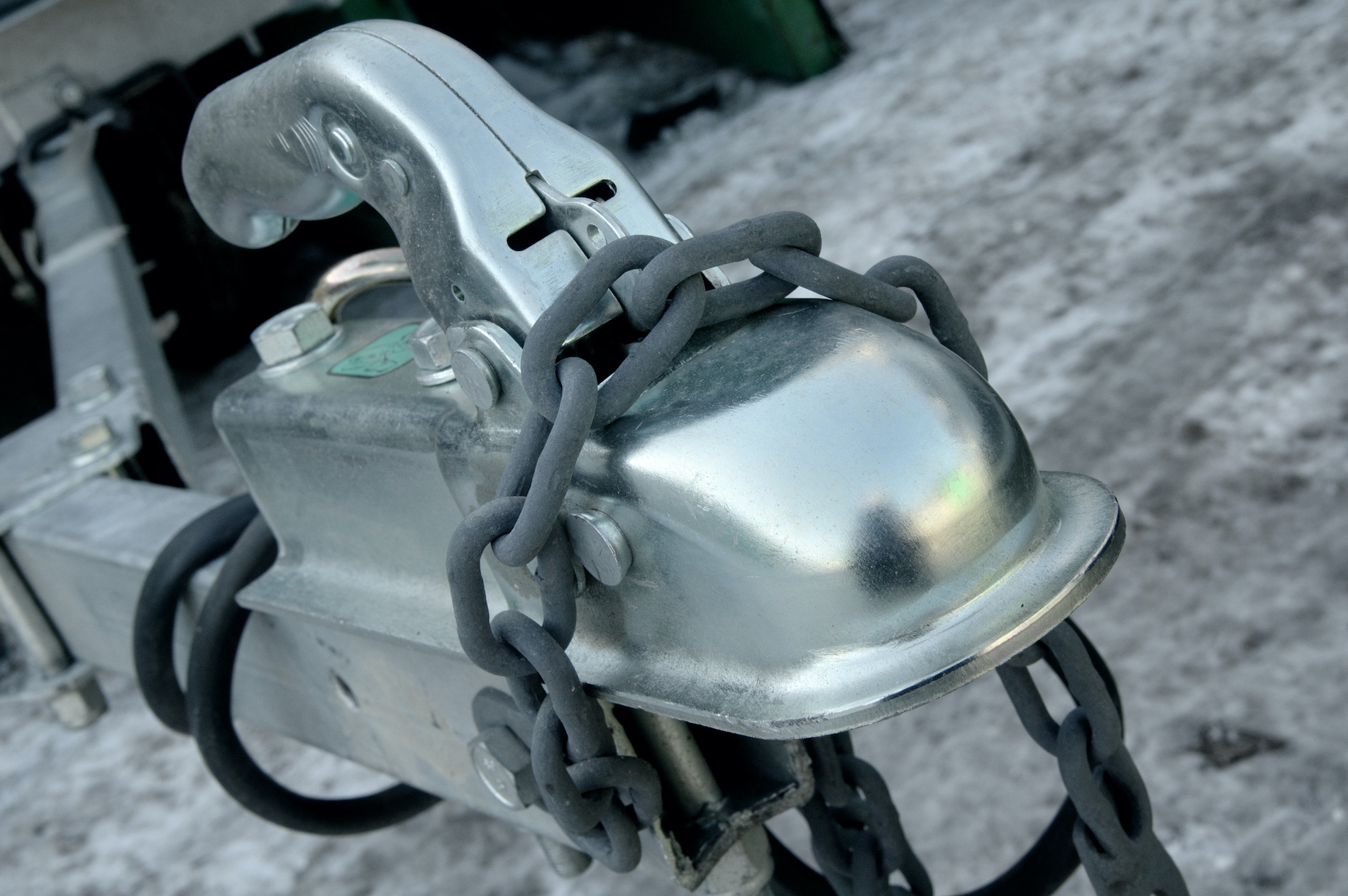
The hitch for your trailer might look tough, but it needs some tender loving care, too. (Image from Getty)
Load Your Trailer Correctly
Once your trailer is attached, you should also consider how you load cargo into your trailer. On average, roughly 60 percent of the weight you load into your trailer should be ahead of the trailer’s axle with the remaining 40 percent behind.
Loading your trailer correctly will reduce the amount of stress on the rear axle of your SUV. It will also reduce the likelihood of your trailer dangerously bouncing or swaying behind your vehicle when towing at higher speeds.
Do You Need A Trailer Brake Controller?
These controllers are standard on larger trucks that are meant for towing bigger trailers. The controller essentially relays a signal from your vehicle to your trailer’s brakes when you apply pressure to the brake pedal.
It is essential for trailers that feature their own brake systems. Without it, there is no way for your towing vehicle to communicate with your trailer’s built-in brake system and all of the responsibility for slowing down will be on your vehicle’s brakes only.
Unfortunately, not too many SUVs have a trailer brake controller built-in. So you may need to purchase and install an aftermarket product if you are considering towing a larger trailer.
You do not absolutely need a trailer brake controller for a smaller camper and it won’t be effective if your trailer doesn’t have a built-in brake system. If it does, however, a brake controller allows for much safer braking while also reducing the wear on your SUV’s brakes and will keep you from flying through pads when you tow.
Should You Get A Weight Distribution Hitch?
A weight distribution hitch will help to further reduce sway and bounce when towing at higher speeds. It will also provide better control when steering and eliminate loss of control when braking.
Generally speaking, this type of hitch is used for towing larger-trailer. If you feel like you are barely keeping your trailer on the road when towing, however, that is probably a good sign that you should install a weight-distribution hitch.
The only downside of this style of hitch is that many manufacturers will recommend that you detach the spring-loaded sway control bars when making tight turns or navigating into campsites. If you fail to do this, it can put a lot of strain and torque on your hitch receiver as well as the entire frame of your vehicle.
Over time, this can have some costly negative effects. So it is worth it to pull over and disconnect your weight distribution hitch bars before you enter a campground or narrow parking lot. This can just be slightly time-consuming and a little annoying in practice.
What About Side Mirrors?
Many SUV owners install side mirror extensions in order to have better visibility of the clearance for their trailer around turns and when pulling into campsites. These mirrors can also help you monitor traffic behind you so that you can respectfully pull over and allow folks by when towing at slower speeds on windy roads.
Conclusion
Safe towing just requires a little bit of foresight and preparation. With these tips, you should be able to hook your camper up and tow it safely to your next exciting destination without stress or worry!
We hope you found these tips useful and we would love to hear from you if you have any questions about them. Also, feel free to contact us if you have any other tips or insights to add to what we have set forth above!

